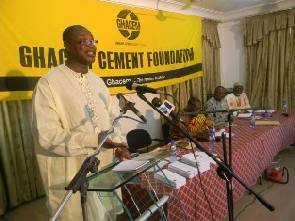 The mother body of trade union activities in the country also said in a statement Thursday, it expected the 2015 Budget Statement and Economic Policy to base efforts towards economic transformation on the Senchi Consensus.
The mother body of trade union activities in the country also said in a statement Thursday, it expected the 2015 Budget Statement and Economic Policy to base efforts towards economic transformation on the Senchi Consensus.
The Senchi Consensus is a 22-point communiqué that resulted from a three-day National Economic Forum attended by eminent economists, civil society groups and notable personalities held in May this year.
“But we regret to note that government policies have remained stealthily unchanged. We do not believe that the same policies that nearly led to the collapse of our economy can solve our economic and social problems, especially the excruciating poverty that has afflicted over 7 million of our compatriots”, the 500,000-member strong union lamented.
The statement signed by Yaw Baah, Acting Secretary General of TUC, said though the budget statement made commendable proposals for state institutions — such as the Factories Inspectorate Division, expansion of the Livelihood Empowerment Against Poverty (LEAP) — to be strengthened government is not likely to walk the talk.
The TUC also says proposals to support private sector development, introduce progressive free secondary education and improve governance, including dealing with corruption is worthy, albeit empty.
“These are laudable proposals except that they are not new and we do not find any new ideas and measures in the [2015] Budget that would make these interventions work this time. Specific and more radical measures are required to change course”, the TUC stated.
The TUC said despite Ghana’s worsening employment challenge, the 2015 Budget, “in a typical IMF tradition” has not made provision for employment creation.
“The managers of our economy continue to wrongly assume that once we achieve a certain level of GDP growth employment creation will automatically follow”, the TUC chided government.
The Ghana Trades Union Congress and other labour groups embarked on a nationwide demonstration on Thursday, July 24 against economic challenges in the country.
The Labour Unions said the demonstration is inspired by hikes in petroleum prices, the fall in value of the local currency, the Ghana cedi against major trading currencies and high cost of living.





